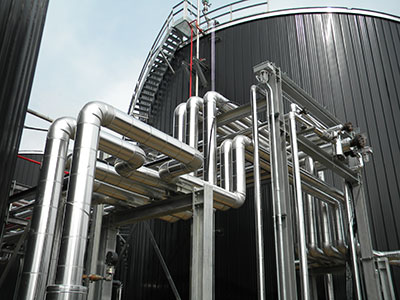Understanding the R-value of cellular glass insulation can make a big difference in energy savings and long-term building performance. Many people overlook this material, but I have seen firsthand how important its performance is.
The R-value of HUAYUE cellular glass insulation is typically around 3.4 per inch. This means it provides reliable resistance against heat loss or gain, making it a solid choice for both homes and industrial facilities.

When customers come to me, they’re often overwhelmed by all the insulation choices—fiberglass, mineral wool, polystyrene, and more. I know how challenging it can be. Many projects face issues simply because the unique strengths of each material aren’t fully understood at the beginning. This is a shame, especially with something as durable and dependable as HUAYUE cellular glass insulation. When you know what it can do, it’s easier to avoid mistakes and costly rework.
What is cellular glass insulation and why does it matter for building projects?
Cellular glass insulation is made from finely crushed glass blended with a foaming agent. It gets heated until it expands and forms a lightweight block full of tiny air-filled cells. These cells are sealed shut, so the material stays dry and solid for decades.
HUAYUE cellular glass insulation matters because of what it does not include: it does not absorb water, it does not burn, and it can handle heavy loads. This makes it valuable for protecting everything from chemical tanks to flat roofs and green building projects.

I remember the first time I saw a piece of HUAYUE cellular glass after years of use—it looked almost new. The fact that it does not mold, rot, or attract bugs makes it especially practical for harsh or damp settings. In my projects, I’ve seen it perform again and again in tough spots, whether on piping in a factory or under a house’s foundation. Many engineers choose it for exactly these reasons. Unlike traditional insulation materials, you can trust that it will keep working, no matter the moisture or chemical exposure.
Is the R-value of cellular glass insulation good enough for energy savings?
It’s easy to get caught up in the numbers, but the steady R-value of 3.4 per inch in HUAYUE cellular glass insulation is more useful than you might think. Unlike some foam or wool insulations that drop in performance when exposed to moisture or physical stress, cellular glass keeps its insulation strength stable for decades.
I often talk with plant engineers who are worried about corrosion under insulation or insulation that fails after just a few years. With HUAYUE cellular glass, I can assure them that what they install now will work just as well in ten or twenty years. Even if you install it under a tank or over a damp foundation, it won’t soak up water or lose performance. The consistent R-value means your energy savings do not slowly disappear year by year, and the insulation always does its job.

Looking at other types, fiberglass and mineral wool both boast similar numbers, but they are more likely to deteriorate or develop gaps. Extruded polystyrene sometimes starts higher but can absorb water and its performance drops off. With cellular glass, what you get is reliability—a quiet but steady kind of value every year you use it.
What unique advantages does HUAYUE cellular glass offer compared to other insulation types?
The unique perks of HUAYUE cellular glass insulation stretch beyond just numbers. Because it is made mainly of glass, it simply does not burn. This means no extra flame retardants or added chemicals are needed, so it stays safe for environments that demand a high standard.
The insulation is also naturally resistant to water and pests. After working with many kinds of insulation, I can tell you: not having to worry about ants, termites, or mold makes life a lot easier. With HUAYUE cellular glass, you can install it and forget about it. During manufacturing, recycled glass is often used, which makes the product even more environmentally friendly and reduces its overall impact.
One of the reasons customers like Hans Müller keep coming back to HUAYUE cellular glass is its toughness. In critical systems—like chemical tanks and large storage vessels—the insulation never lets water inside, so you never have to worry about hidden corrosion or a slow loss in insulation value. The long life span and safety make it a cost-effective option over the entire life of the building or tank. It also means that, over time, the slightly higher price gets balanced out by almost no maintenance or replacement work.
I have seen how challenging complex projects can be when you pick an inferior insulation. Materials that break down or need replacing interrupt the workflow and cost a lot in repairs. But with HUAYUE cellular glass, I’ve watched engineers finish a job and move on, knowing their work will stand the test of time.
Conclusion
HUAYUE cellular glass insulation offers consistent R-value, high fire and water resistance, and dependable, long-lasting performance for energy saving and building safety.

